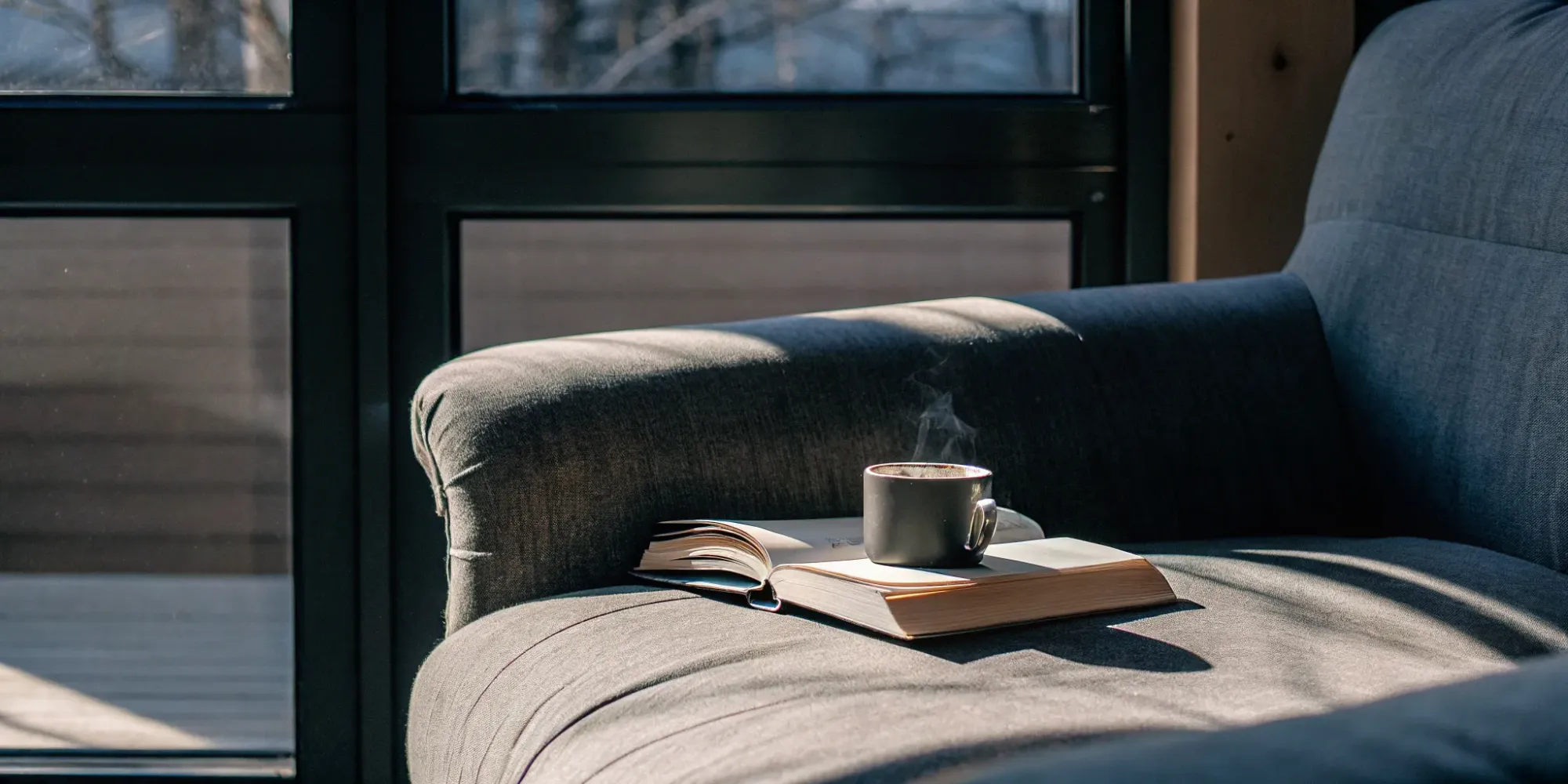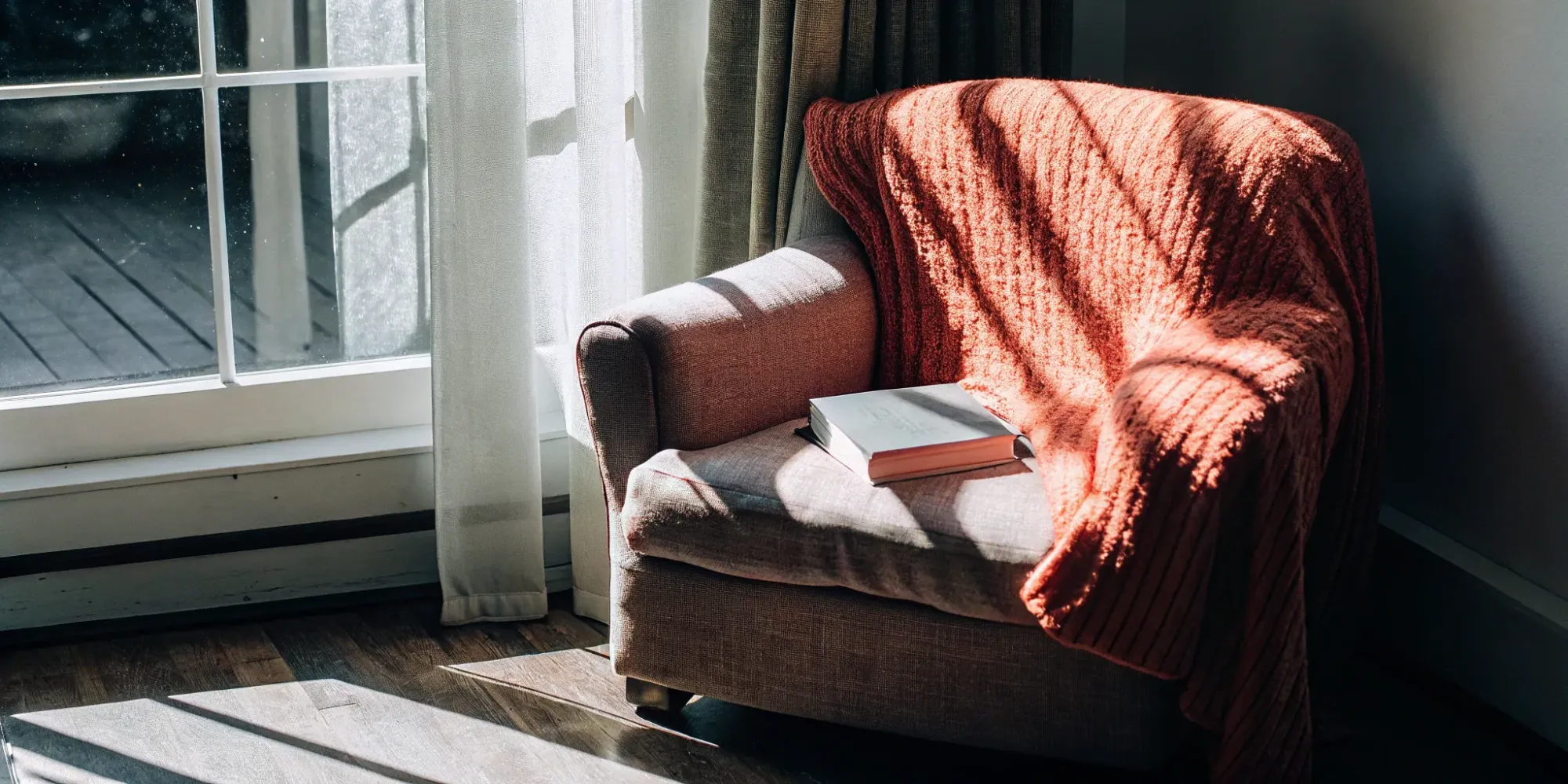Iowa Renters Insurance: Cost & Coverage Explained
25 Jun 2025 • 18 min read

Take a quick mental tour of your apartment. Think about your laptop, your TV, your entire wardrobe, the bike in the corner, and all your kitchen gadgets. Now, ask yourself honestly: if you had to replace all of it tomorrow after a fire, could you afford it? Most of us seriously underestimate the value of our belongings because we buy them over time. That slow accumulation hides the true cost of starting over from scratch. This is why renters insurance is so essential. It’s not just for people with expensive art collections; it’s for anyone who would struggle to replace their everyday essentials. We’ll show you why Iowa renters insurance is a vital tool for protecting what you already own.
Key Takeaways
- Your Landlord's Policy Doesn't Cover You: Your landlord’s insurance protects the building, not your personal belongings. Renters insurance is your financial safety net for replacing your things after a fire or theft and covers you if you’re held liable for an accident in your home.
- Choose Replacement Cost for a Real Recovery: Opting for a replacement cost value (RCV) policy means you'll get enough money to buy new items if yours are destroyed, not just a check for their used value. This single choice makes a huge difference in how well you can get back on your feet.
- Be Proactive to Save Money and Hassle: You can lower your premium by bundling policies, increasing your deductible, and asking about discounts for safety features. Taking the time to create a home inventory now will make any future claims process significantly easier.
What is Iowa Renters Insurance (And Why You Need It)
Think of renters insurance as a financial safety net for your life inside your apartment or rental home. It’s a common misconception that your landlord’s insurance policy protects you, but it only covers the building itself—the walls, the roof, and the structure. Your belongings and your personal liability are your own responsibility.
Renters insurance is designed to be an affordable way to protect yourself from unexpected events that could otherwise be financially devastating. Let's break down what that really means. It generally steps in to help in three major ways: it protects your personal property, covers you if you’re responsible for an accident, and helps pay for a place to stay if your rental becomes unlivable. It’s a simple policy that provides significant peace of mind for a small monthly cost.
Protect Your Stuff
From your laptop and TV to your furniture and clothes, you likely own more than you think. Now, imagine having to replace it all at once after a fire or a break-in. Iowa renters insurance provides coverage for your personal belongings if they are damaged or stolen due to a covered event. This means your policy can help pay to replace your things after disasters like theft, fire, or vandalism. Without it, you'd be on the hook for the full cost of getting back on your feet, which can add up surprisingly fast.
Cover Yourself from Accidents
Accidents happen, and if one occurs in your apartment, you could be held responsible. For example, if a guest trips and injures themselves in your kitchen, or if your overflowing bathtub damages the apartment below you, you could be sued. This is where personal liability coverage comes in. It’s a standard part of a renters policy that helps cover legal fees and medical bills if you’re found liable for injuring someone or damaging their property. Your landlord’s insurance won’t help with this, so having your own liability coverage is essential protection.
Pay for a Place to Stay if You're Displaced
If a fire, major water leak, or another covered disaster makes your rental uninhabitable, where would you go? Finding and paying for a last-minute hotel or a temporary rental can be incredibly expensive and stressful. A standard renters insurance policy includes coverage for temporary living expenses. This means your policy can help pay for things like hotel bills, temporary rent, and even the extra cost of meals if you’re forced out of your home during repairs. It ensures you have a safe place to stay without draining your savings.
What Does Iowa Renters Insurance Actually Cover?
Think of renters insurance as a financial safety net for your life as a renter. It’s designed to step in when the unexpected happens, protecting your belongings and your bank account from major setbacks. While your landlord’s insurance covers the building you live in, it does absolutely nothing for you or your stuff. That’s where your own policy comes in. It generally provides four key types of protection that every renter in Iowa should understand.
Your Personal Belongings
From your couch and laptop to your clothes and kitchenware, you own more than you think. Iowa renters insurance provides coverage for your personal property if it’s damaged or destroyed by a covered event, like a fire, theft, or burst pipe. Imagine having to replace your entire wardrobe or all your electronics out of pocket — it would be a huge financial hit. Instead of draining your savings, your policy can help you recover the costs to replace what you lost. This coverage applies whether your things are inside your apartment or stolen from your car, giving you peace of mind wherever you go.
Personal Liability
Accidents happen, but they don’t have to ruin you financially. Personal liability coverage is a core part of your renters policy that protects you if you’re found responsible for injuring someone or damaging their property. For example, if a guest slips and falls in your apartment, or if you accidentally let your bathtub overflow and damage the unit below you, this coverage can pay for medical bills or repair costs. Essentially, it protects you against claims and potential lawsuits, which is a massive relief for both you and your landlord.
Temporary Living Expenses
What would you do if a fire or severe storm damage made your apartment unlivable? Finding a last-minute hotel or a short-term rental can get expensive, fast. This is where temporary living expenses coverage, sometimes called "loss of use," saves the day. If you’re forced out of your home due to a covered peril, your policy typically covers temporary living expenses. This financial assistance can pay for things like hotel stays, meals, and other essentials while your home is being repaired, so you aren’t left scrambling to find a place to stay.
Specific Natural Disasters
It’s a common misconception that your landlord’s insurance will help you after a natural disaster. While their policy covers the physical building, it does not extend to your personal items inside. Renters insurance can help protect your belongings from damage caused by specific events common in Iowa, like tornadoes and severe windstorms. However, it's important to know that standard policies usually don't cover damage from floods or earthquakes. If you live in an area prone to flooding, you’ll likely need to purchase a separate flood insurance policy to be fully protected. Always check your policy details to see exactly which events are covered.
Is Renters Insurance a Requirement in Iowa?
So, do you have to get renters insurance in Iowa? The short answer is: it depends. While the state itself doesn't have a law on the books forcing you to get a policy, your landlord is a different story. This is a common point of confusion, but understanding the difference between a state law and your landlord's rules is the first step to making sure you're covered.
State Law vs. Landlord Rules
Let's get one thing straight: Iowa state law does not require you to buy renters insurance. There’s no government mandate that says you must have a policy to rent an apartment or house. However, your landlord absolutely can require it, and it's a very common clause in lease agreements across the state. While the state doesn't mandate it, many landlords and property management companies require a policy as a condition of your lease. Your lease is the ultimate guide here, so be sure to read it carefully to see if it’s a requirement for your specific rental.
Why Your Landlord Might Require It
It might feel like just another bill, but your landlord has a good reason for this rule. Their insurance policy covers the building—the roof, the walls, and the structure itself. It does absolutely nothing for your personal belongings. The People's Law Library of Iowa clearly states that a landlord's insurance protects the building, but not a renter's things. So if a fire breaks out or a pipe bursts and ruins your laptop, furniture, and clothes, you're on your own without your own policy. It also protects them from liability if a guest is injured in your apartment, which is a standard way for them to manage their risk.
How Much Does Renters Insurance Cost in Iowa?
Let’s talk about the number one question on every renter's mind: how much is this going to cost? The great news is that renters insurance is one of the most affordable types of insurance you can get. For the price of a few fancy coffees a month, you can protect everything you own. The exact price tag depends on a few key things, but understanding them puts you in control. We’ll walk through the average costs in Iowa, what goes into your specific price, and a crucial policy choice that can make a huge difference if you ever need to file a claim.
The Average Cost for Iowa Renters
Getting renters insurance in Iowa is surprisingly affordable. On average, Iowa renters pay about $21 per month, which is a couple of dollars less than the national average. That comes out to around $248 for a full year of coverage. Think about it—that’s likely less than the cost of replacing just your TV or laptop if something unexpected happened. For a relatively small monthly expense, you get peace of mind knowing your belongings are protected from events like theft, fires, or certain types of water damage. It’s a small price for some serious financial security.
What Determines Your Premium?
Your personal insurance rate, or premium, isn't just a random number. Insurance companies look at a few specific details to figure out your price. Your location matters—rates can vary by city or even neighborhood based on factors like local crime statistics. Your claims history also plays a part; if you haven't filed claims in the past, you'll likely get a better rate. The amount of coverage you choose is another big factor. Protecting $40,000 worth of belongings will cost more than covering $15,000. These factors that can affect the cost help providers create a price that matches your specific situation.
Replacement Cost vs. Actual Cash Value: What's the Difference?
This is one of the most important choices you'll make when picking a policy. The difference between replacement cost and actual cash value is how you get paid after a loss. Actual cash value (ACV) pays you for what your items were worth at the time they were damaged or stolen, which includes depreciation. So, that five-year-old couch won't get you much. Replacement cost coverage (RCV), on the other hand, pays to replace your old items with new, similar ones. While a replacement cost policy might be slightly more expensive per month, it provides far more value when you actually need it. It’s the difference between getting a check for $50 for your old TV versus getting enough money to buy a new one.
Busting Common Myths About Iowa Renters Insurance
Renters insurance is one of those things that’s easy to put on the back burner, especially when there are so many misconceptions floating around. Let's clear up some of the most common myths so you can make a smart decision about protecting your stuff and yourself. Getting the facts straight can save you a lot of money and stress down the road, and it’s usually simpler and more affordable than you think. We'll walk through the biggest myths one by one to show you what’s really covered and why it matters.
Myth: "My landlord's insurance has me covered."
This is probably the most common and costly myth out there. It’s easy to assume that since your landlord has insurance on the property, you’re automatically included. But that’s not how it works. Your landlord's insurance covers the physical building—the walls, the roof, the foundation. It does absolutely nothing to protect your personal belongings inside. If there’s a fire, a burst pipe, or a break-in, your landlord’s policy won’t pay a dime to replace your laptop, furniture, or clothes. That responsibility falls entirely on you, which is why having your own policy is so important for your financial safety.
Myth: "It's too expensive."
When you’re already paying for rent, utilities, and everything else, adding another bill can feel like a stretch. Many people believe renters insurance is a major expense, but the reality is that it’s surprisingly affordable. For the price of a few fancy coffees a month, you can get coverage that protects thousands of dollars worth of your belongings. Think of it as a small, predictable cost that prevents a potentially huge, unexpected expense later. When you consider the peace of mind it offers, you'll find that renters insurance is often a practical option for almost any budget.
Myth: "I don't own enough to make it worth it."
Take a quick mental tour of your apartment. Think about your clothes, your laptop, your TV, your bike, your kitchen gadgets, and all your furniture. If you had to replace everything at once, could you afford it? Most of us underestimate the value of our belongings because we accumulate them over time. But the replacement cost adds up fast. Creating a quick home inventory can be an eye-opening exercise. You’ll likely find that you own far more than you think, making a renters insurance policy a very worthwhile investment to protect your assets.
Myth: "All insurance policies are the same."
Assuming all renters insurance policies are created equal is a big mistake. While most offer basic protections for personal property and liability, the details can differ quite a bit. The coverage can vary when it comes to coverage limits (the maximum amount an insurer will pay), deductibles (what you pay out of pocket), and specific exclusions (what isn’t covered). Some policies might offer replacement cost value while others offer actual cash value, which makes a huge difference in your payout. It’s essential to read the fine print and compare your options to find a policy that truly fits your needs.
How to Pick the Right Renters Insurance Policy
Choosing a renters insurance policy isn't just about checking a box for your landlord. It's about finding the right financial safety net for your life and your belongings. Taking a little time to find the right fit can save you a massive headache and a lot of money down the road. By focusing on three key steps—assessing your needs, comparing your options, and reading the details—you can confidently pick a policy that truly works for you.
Assess How Much Coverage You Need
Before you can pick a policy, you need a clear picture of what you’re protecting. A standard renters policy covers two main areas: your personal property and your personal liability. Start by taking stock of your belongings. Think about what it would cost to replace everything you own—from your laptop and TV to your couch and clothes. Creating a quick home inventory can make this much easier. This gives you a solid number for your personal property coverage. Then, consider liability. This protects you financially if someone is accidentally injured in your home. A renters policy provides coverage for your personal belongings and liability, so getting these numbers right is the most important first step.
Compare Quotes from Different Providers
Once you know how much coverage you need, it’s time to shop around. Don't just go with the first or cheapest option you find. Prices can vary quite a bit between insurance companies, and in Iowa, rates have been on the rise. Getting quotes from a few different providers will give you a sense of the market and help you find a fair price. But remember, cost isn't everything. Look for a company with a reputation for great customer service and an easy-to-use online experience. You want a provider that will be there for you when you actually need them, not just one that offers the lowest price tag.
Read the Fine Print: Policy Terms and Limits
This might be the most overlooked step, but it’s critical. Your landlord’s insurance only covers the building itself, not your stuff. That’s why you need to understand exactly what your own policy covers. Pay close attention to coverage limits, especially for high-value items like jewelry, art, or electronics, as you may need extra coverage for them. Also, check which perils are covered. Most standard policies cover events like fire and theft, but not always things like floods or earthquakes. Understanding these details ensures there are no surprises if you ever have to file a claim and helps you know you’re truly protected.
Smart Ways to Save on Your Iowa Renters Insurance
Renters insurance in Iowa is already one of the most affordable ways to protect your finances, but who doesn’t love saving a little extra cash? Getting a great price isn’t about cutting corners on your coverage; it’s about being a savvy shopper. Insurance companies reward responsible renters, and a few simple steps can lower your monthly premium without sacrificing peace of mind. Think of it as getting credit for the smart things you’re already doing, like having a smoke detector or paying your bills on time.
Many people set up their policy and forget about it, but a quick review could uncover savings you’re missing out on. The key is to understand what insurers look for when they calculate your rate. They’re assessing risk—the lower your risk of filing a claim, the lower your premium will be. Simple actions, from installing a security camera to choosing a higher deductible, signal to your provider that you're a lower-risk customer. By taking a proactive approach, you can make sure you’re getting the best possible rate for the coverage you need. Here are some of the most effective ways to trim your renters insurance costs.
Bundle Your Policies
If you have car insurance, this is one of the easiest ways to save. Most insurance providers offer a discount when you bundle your policies, meaning you buy both your renters and auto insurance from them. It’s a win-win: you get a lower price on both policies, and you get the convenience of managing your insurance in one place. If you already have auto insurance, ask your current provider what their renters insurance bundle looks like. It’s often one of the most significant discounts available, so it’s always worth checking.
Raise Your Deductible
Your deductible is the amount of money you agree to pay out-of-pocket before your insurance coverage starts. For example, if you have a $500 deductible and your $3,000 laptop is stolen, you’d pay the first $500, and your insurer would cover the remaining $2,500. Choosing a higher deductible, like $1,000 instead of $500, will lower your monthly premium. Just be sure to pick a deductible amount you could comfortably pay from your savings. This is a common strategy for finding cheap renters insurance quotes, but it requires balancing monthly savings with your emergency fund.
Install Safety Devices
Your landlord has probably already equipped your apartment with a few safety features, and they could be saving you money. Insurance companies often provide discounts for homes with protective devices because they reduce the risk of theft or damage. Standard items like smoke detectors, fire extinguishers, and deadbolt locks can often qualify you for a small rate reduction. If you have a security system or burglar alarm, the savings can be even more significant. Make sure to let your insurance provider know about every safety feature in your rental.
Ask About Discounts
You don’t get what you don’t ask for. While some discounts are standard, others might not be applied automatically. When you’re getting a quote, make it a point to ask the agent, “Are there any other discounts I might qualify for?” You might be surprised. Some insurers offer reduced rates for being claims-free for a certain period, having a good credit score, or even being a non-smoker. Certain employers or professional organizations also have partnerships that can lead to available discounts. It never hurts to inquire.
What Exactly Is Liability Coverage?
Let's talk about one of the most important parts of your renters policy: liability coverage. Think of it as your financial backup plan for accidents. If someone gets hurt in your apartment, or if you accidentally cause damage to someone else's property, this is the coverage that steps in to help with the costs. For example, if a friend trips over a rug and breaks their arm during your housewarming party, your
Essentially, liability coverage is there to protect you from claims of bodily injury or property damage that you might be responsible for. It’s not just about protecting your stuff; it’s about protecting your savings and your future from the high cost of an unexpected lawsuit. Without it, you could be on the hook for thousands of dollars in legal fees and settlement costs. It’s a core piece of the peace of mind that renters insurance provides, ensuring a small mishap doesn’t turn into a major financial crisis.
How Much Coverage is Standard?
When you get a renters insurance quote, you’ll find that a standard renters insurance policy is a package deal that typically includes three key protections. First, you have personal property coverage for your belongings like furniture, clothes, and electronics. Second, you get the personal liability coverage we just discussed for accidents. And third, you get coverage for additional living expenses, which helps pay for a hotel or temporary rental if your apartment becomes unlivable due to a covered event like a fire. This combination ensures you’re covered from multiple angles. Most policies start with a baseline amount of liability coverage, often around $100,000, which is a solid starting point for many renters.
Should You Get More Liability Coverage?
While a standard policy offers a solid foundation, it's wise to consider if you need more. Think about your personal assets and potential risks. Do you host guests often? Do you have a pet? These factors can increase the likelihood of an accident. While Iowa law doesn't require you to have renters insurance, it's a smart financial decision. It’s also crucial to remember that your landlord's insurance only covers the building structure, not your belongings or your liability. If a guest sues you, your landlord’s policy won’t help. Increasing your liability limit is often surprisingly affordable and provides a much larger safety net for your financial future.
How to File a Claim and Protect Your Assets
Hopefully, you’ll never need to use your renters insurance, but if something happens, you’ll be glad you have it. Knowing how to file a claim ahead of time can make a stressful situation much more manageable. Being prepared is your best defense, and it starts with understanding what to do when things go wrong.
Common Reasons for Claims in Iowa
In Iowa, renters file claims for a variety of reasons, but some of the most frequent are fire, theft, and water damage from a burst pipe. These are the exact kinds of unexpected events that can turn your life upside down. It’s important to remember that your policy protects your personal belongings against these covered perils, and it also provides liability coverage if someone is accidentally injured in your apartment. Your landlord’s insurance won’t help you here; their policy is designed to protect the building itself, not your laptop, furniture, or clothes. Without your own renters policy, you’re left to cover the replacement costs all by yourself.
Create a Home Inventory
If I can give you one piece of advice, it’s this: create a home inventory before you ever need it. This is the single most important step you can take to protect your assets. An inventory is simply a detailed record of your belongings and their value. The easiest way to start is to walk through your home and take a video, narrating what you see. Open drawers and closets. Then, create a simple list with photos, descriptions, serial numbers, and purchase dates for your more expensive items. You can even use a free app to organize it all. Having this proof of ownership makes the claims process infinitely smoother and helps ensure you get the full value you’re owed for your property.
What to Expect During the Claims Process
When you need to file a claim, the first step is to contact your insurance provider as soon as possible. You’ll need to provide details about what happened and give them the home inventory you created. They will assign a claims adjuster to your case, who will review the incident, assess the damage to your property, and determine the payout based on your policy’s coverage. The more documentation you have—your inventory, photos of the damage, and any police reports—the more straightforward the claims process will be. Being organized and responsive will help your adjuster get you the funds you need to get back on your feet.
Related Articles
- Renters Insurance Liability Coverage: What It Is & Why You Need It | Goodcover
- Renters Insurance and Car Theft: Everything You Need To Know | Goodcover
- The Benefits of Renters Insurance for Furnished Apartments: Don’t Be Caught Unprepared | Goodcover
Frequently Asked Questions
My landlord requires renters insurance. Do I have to use the company they recommend? No, you don't. While your landlord can require you to have renters insurance as a condition of your lease, they can't force you to buy it from a specific company. You have the freedom to shop around and choose the provider that offers the best coverage, service, and price for your needs. Just make sure the policy you choose meets the minimum liability coverage amount specified in your lease agreement.
Is my stuff covered even if it’s stolen from my car or a hotel room? Yes, in most cases it is. One of the best features of renters insurance is that your personal property coverage typically follows you. So, if your laptop is stolen from your car or your luggage disappears while you're on vacation, your policy can help you cover the cost of replacing those items, subject to your deductible and coverage limits.
What's the single most important thing I can do to prepare for a potential claim? Create a home inventory. It might sound like a chore, but it's the most effective way to ensure a smooth claims process. Simply walk through your home and take a video of your belongings, paying special attention to electronics, furniture, and other valuables. This record serves as proof of ownership and makes it much easier to account for everything you lost, helping you get the full value you're owed from your insurer.
Does my renters insurance policy also cover my roommate? Your policy generally only covers you and any resident relatives, like a spouse or child. It does not automatically extend to a roommate. For both of you to be properly protected, your roommate will need to get their own separate renters insurance policy. This prevents confusion during a claim and ensures their belongings and liability are covered without impacting your own policy.
If I choose a higher deductible to save money, how do I know what amount is right for me? A great rule of thumb is to choose a deductible amount that you could comfortably pay out of pocket tomorrow without causing major financial stress. Look at your emergency fund and decide on a figure you could cover without derailing your budget. While a higher deductible lowers your monthly premium, you don't want to set it so high that it would be a hardship to pay if you actually needed to file a claim.
More stories
Dan Di Spaltro • 21 Jul 2025 • 18 min read
How to Make Changes to Your Tenancy Agreement
Dan Di Spaltro • 18 Jul 2025 • 21 min read
Most Affordable Renters Insurance: A Complete Guide
Dan Di Spaltro • 17 Jul 2025 • 18 min read
Affordable Renters Insurance in Florida: Top Picks for Savings
Dan Di Spaltro • 16 Jul 2025 • 22 min read
Your Guide to Affordable Renters Insurance
Dan Di Spaltro • 15 Jul 2025 • 16 min read




